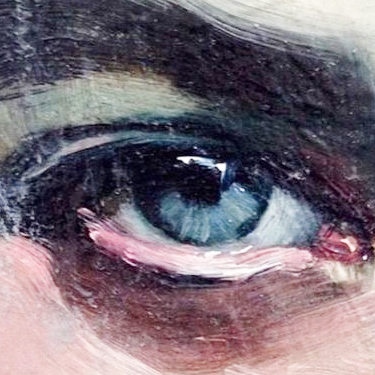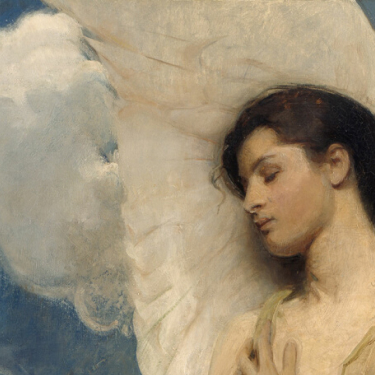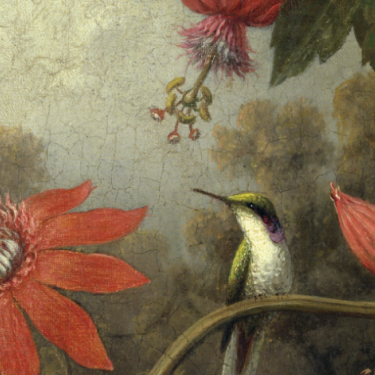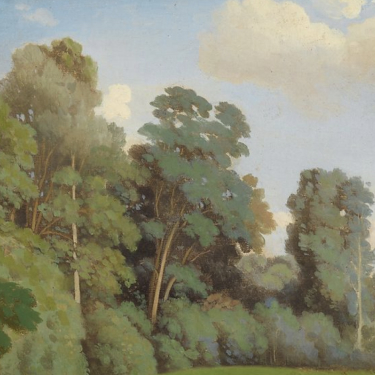The Artist
COGNITION

ISFP
Quick definition
Adventurous creatives. Adaptable and introspective. Modest and adaptable. Caretakers and artists, who see and nurture the beauty of the world.
Average user score
83
Find your score on over 100 traits on Dimensional.
Download
ISFPs, also known as the Artist types, are both experimental and sentimental, with a deep appreciation for nature and beauty. Above all, this type is creatively adventurous — they love taking the world around them as inspiration to create something new and surprising. This experimental streak applies to all aspects of their lives: in their aesthetic choices, workplace habits, and relationship patterns, ISFPs look to disrupt the status quo through exploration, beauty, and sensuality.
Introverted at heart, the Artist needs time to recharge. This time is often spent assessing their values, pursuing their passions, and creating the creative life they crave. Deeply in tune with their own identity, ISFPs are often in a state of contemplation and reinvention. At times reckless or impulsive in the pursuit of change and adventure, this type at times enjoys thrilling activities including extreme sports and gambling.
Distribution of user scores
0
25
50
75
100
Other Archetypes in Cognition
Opposite
(I)ntroverted
(E)xtroverted
(S)ensing
I(N)tuitive
(F)eeling
(T)hinking
(J)udging
(P)erceiving
Artist types are private individuals and can appear guarded at first to romantic interests. Their deep sensitivity means they often protect themselves from getting hurt in love, and can take their time to open up. Verbal reassurance and gestures of care can be helpful for ISFPs as they open up to their partners.
As they become closer with their partners, Artists prove to be very considerate, thoughtful lovers who demonstrate their affection through creative gestures, gifts, and acts of service. Their empathetic nature makes them incredibly considerate of their counterparts, and their spontaneity means that the relationship rarely gets stale — you can trust an ISFP to come up with a wild idea for a date, trip, or move to keep things fresh. While ISFPs can be very in-tune with their partners' needs, they may be slow to express their own needs in a relationship, causing them to retreat. Typically, this type is happiest in a relationship when they have space to remain independent and ample alone time.
ISFPs like to apply their adventurous, experimental flair to the workplace — they prefer roles where they're free to be curious and creative, rather than jobs with strict processes and protocols. As spontaneous and friendly individuals, they tend to be liked in the workplace, and work well both on teams and individually. Their adaptability and awareness make them strong employees as long as they're invested in their tasks — but their lack of long-term focus can work to their detriment. More sensitive than they let on, ISFPs may struggle with criticism or having too full of a plate.
As they're driven by their own authentic desire to experiment, learn, and reflect, ISFPs tend to make excellent artists, musicians, psychologists, or teachers. They also excel in roles where they can explore the outdoors and put their creative, adventurous spirits to use. Many may find work as outdoor ed teachers, photographers, or builders.
ISFPs are fiercely independent — and this is usually a great thing. But at times, their individualism can cause them to appear reserved, quiet, or disinterested in those around them. As their freedom is a top priority, Artists can be easily agitated by rules, traditions, or structure. This can lead them to shy away from certain opportunities or to become disorganized in an effort to avoid routine. Others may find the ISFP's free-spirited behavior a little hard to pin down, and may avoid relying on them for important tasks due to their flighty nature. ISFPs have the best intentions, but their focus on the here-and-now can sometimes have stressful results: they struggle to plan for the long-term, and may avoid goal setting or commitment as a result.
Unhealthy Adaptations
- Exhibiting an unwillingness to open up to others emotionally or let them into their personal space
- Letting their spontaneity and adventurousness get in the way of necessary planning or important commitments
- Risk-taking that becomes too impulsive, such as gambling or dangerous adventure sports
- Failing to open up to romantic partners and not asking for the validation, love, and reassurance they need from others
- Becoming overwhelmed by a task-list or by conflict and shutting down rather than dealing with it head-on
Artists in leadership positions have both strengths and weaknesses. As leaders, they're empathetic and adaptive, and can apply their creative minds toward inventive projects, processes, and workflows. They tend toward unconventional methods of doing things; for team members who appreciate innovation, this can be a positive. In some cases, others may find their methods hard to follow, particularly if they keep changing.
Their passion and problem solving abilities are immense strengths here, and if they take the time to set long-term goals, ISFPs can be effective, successful leaders. However, Artist types may take little joy in managing teams, as they enjoy their own freedom over the control or power that comes with management. ISFPs excel most in these roles when all members of the team are able to work somewhat independently toward a greater goal. When they're able to put trust in their team members, they can be nurturing, interesting leaders who are excellent at maintaining group rapport and cohesion.
ISFPs find happiness in their own musings and creativity. Passionate, energetic, and contemplative, they enjoy a balance of fun activity and sentimental introspection. Often, this looks like spending alone time in contemplation after being social, or finding ways to reset through quiet moments outdoors. Their bold, curious nature means Artist Types will often seek out risks and new hobbies, and find gratification in personal development and acquiring new skills.
Healthy Adaptations
- Seeking environments where they have freedom to explore, while still focusing on the task at hand
- Applying their artistic and empathetic skills toward fulfilling personal or workplace projects with an altruistic message or goal
- Building deep relationships and being candid about their needs for both reassurance and alone time
- Creating schedules and routines that leave room for spontaneity, change, and play
ISFPs are relaxed and sensitive, with vivid imaginations that lend well to creative output and bold ideas. Their exploratory nature paired with their humanistic empathy makes them assets to projects that involve innovative thinking, visualizing concepts, and passionately appealing to their audience. The Artist type is brilliant at appealing to people's hearts, working outside of the box to challenge traditional norms and posit new ways of being in the world. Friendly and likable, ISFPs also stay true to their strong personal value systems and tend to gain understanding through their own experiences rather than popular opinion.
- Ideating plans for adventures, trips, and quality time spent with loved ones that breaks up routine
- Getting out of their comfort zones through adventurous travels, sports, or other thrilling activities
- Visualizing concepts and coming up with new ways of doing rote tasks to keep things interesting
- Making friends in all areas of their life through their natural enthusiasm and friendliness
- Appealing to others through humanistic, innovative thinking and charisma
- Experimenting with new foods, music, or hobbies to stave off boredom or complacency














